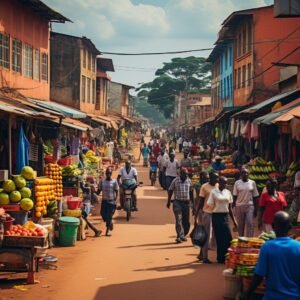Introduction
Traveling to a new country is an exciting adventure, but it’s important to remember that different places have their own set of rules and cultural norms. Respecting and following these rules not only shows courtesy towards the locals but also ensures a smooth and enjoyable travel experience. In this blog post, we will explore the important rules and cultural norms that foreigners should be aware of when traveling to Venezuela.
Key Elements
Element 1: Greetings and Personal Space
In Venezuela, people are generally warm and friendly, and greetings are an essential part of their culture. When meeting someone for the first time, a firm handshake while maintaining eye contact is common. Venezuelans often use both their father’s and mother’s last names when introducing themselves. It’s also customary to greet people with a kiss on the cheek, even if you just met. However, it is essential to note that this is more common among friends and acquaintances and may not be appropriate with strangers.
Respecting personal space is another important cultural norm in Venezuela. Venezuelans tend to stand closer to each other during conversations, and touching or a pat on the arm is common while engaging in friendly conversations. Foreigners should adapt to this norm to avoid making others feel uncomfortable.
Element 2: Table Etiquette
When dining in Venezuela, it is customary to wait for the host to initiate the meal before starting to eat. Venezuelans value communal dining, and it’s common for dishes to be placed in the middle of the table for everyone to share. It is polite to take small portions, so that everyone can have a taste. Additionally, remember to keep your elbows off the table while eating and to say “buen provecho” to wish others a good meal.
Element 3: Safety and Security
Venezuela has experienced some safety concerns in recent years, and it’s crucial for travelers to take precautions to ensure their safety. Avoid walking alone at night, especially in unfamiliar areas. It’s advisable to use licensed taxis or ride-share services instead of hailing a taxi off the street, as this reduces the risk of encountering fraudulent or unsafe drivers. Additionally, be cautious of your belongings and avoid displaying expensive items in public to minimize the risk of theft.
It’s also important to note that there are certain restrictions on photography in Venezuela, particularly around government buildings, military installations, and airports. Always ask for permission before taking pictures in sensitive areas to avoid any legal troubles.
Element 4: Respect for Government and Politics
When visiting Venezuela, it’s crucial to show respect for the local government and political figures. Avoid engaging in discussions or making derogatory remarks about the political situation. In recent years, Venezuela has been polarized politically, and it’s best to avoid controversial topics unless you have a deep understanding of the context and the potential consequences of such discussions.
Element 5: Legal Drinking Age and Drug Laws
The legal drinking age in Venezuela is 18 years old. It’s important to adhere to this age restriction when consuming alcohol to avoid any legal consequences. Additionally, it’s essential to note that drug laws in Venezuela are strict, and penalties for drug-related offenses can be severe. As a foreigner, it’s crucial to refrain from any involvement with drugs and to comply with local laws to avoid legal difficulties.
Tips for Traveling
Now that we have explored some of the key rules and cultural norms in Venezuela, let’s discuss some practical tips to ensure a smooth travel experience:
- Research and Plan: Before your trip, research the country’s customs, laws, and popular tourist destinations. Having a basic understanding of the local culture will help you navigate the travel experience more comfortably.
Learn Basic Spanish Phrases: While many Venezuelans speak English, it is always appreciated when visitors make an effort to communicate in the local language. Learning simple phrases like “hello,” “thank you,” and “excuse me” can go a long way in building positive interactions with the locals.
Dress Appropriately: Venezuelans generally dress quite formally, so it’s wise to avoid wearing overly casual attire, especially in more formal settings. The dress code may vary depending on the occasion, but it’s always a good idea to err on the side of dressing slightly more conservatively.
Stay Hydrated and Be Cautious with Tap Water: The tap water in some parts of Venezuela may not be safe for consumption. It is advisable to drink bottled water or boil tap water before drinking. Staying hydrated is essential, especially in hot weather, so carry a reusable water bottle with you at all times.
Exchange Currency Legally: It’s important to exchange currency legally at authorized exchange offices or banks to avoid counterfeit bills or scams. Be cautious when dealing with street vendors offering currency exchange services.
It’s important to note that the information provided here is a general guide, and it’s always best to check the official laws and regulations of Venezuela before traveling. Speaking with a professional travel advisor or consulting official government travel websites is also recommended to ensure that you have the most up-to-date information.
Disclaimer: This blog post aims to provide general information about the rules and cultural norms in Venezuela. It is not a substitute for professional travel advice or legal counsel. Always consult official sources and authorities before making any travel decisions.


